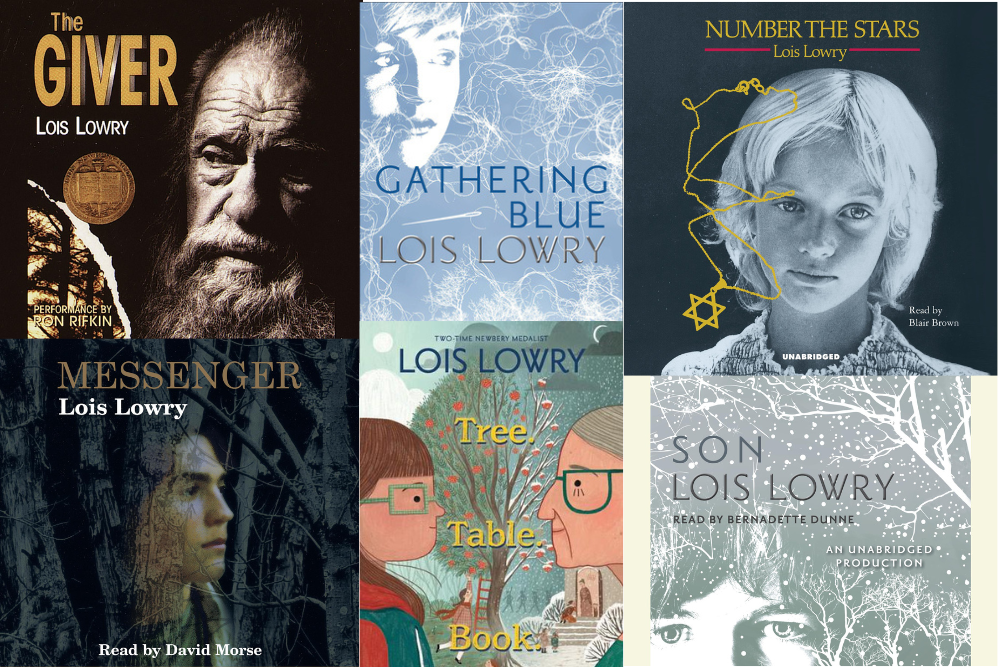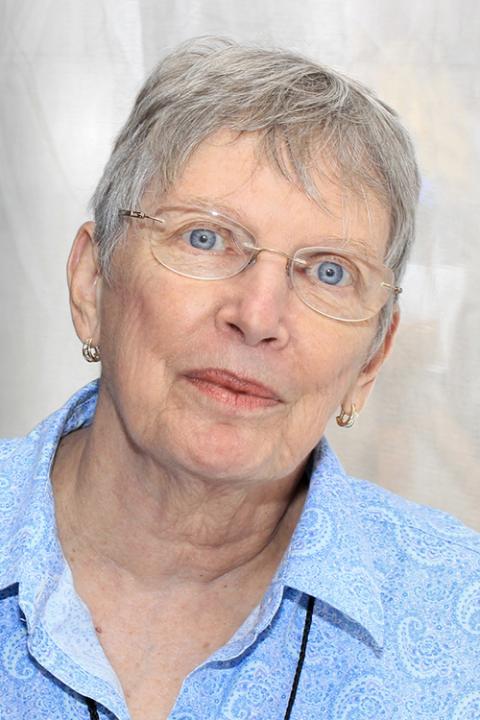
The covers of six of Lois Lowry's books, clockwise from top left, The Giver, Gathering Blue, Numbering the Stars, Messenger, Tree. Table. Book., Son.
Thirty years ago, after her dystopian novel The Giver won the coveted Newbery Medal, bestselling author Lois Lowry issued a warning.
"Those of you who hoped that I would stand here tonight and reveal … the 'right' interpretation of the ending will be disappointed," Lowry said during her speech, before reading messages from readers who had written to the author.
One child wrote that The Giver's main character, Jonas, is "like Jesus because he took the pain for everyone else." Another described parts of Lowry's setting "as if it were heaven."
Advertisement
A Trappist monk, meanwhile, told Lowry that The Giver is a "sacred text." Another passionate fan believed he himself was Lowry's title character — and wrote a "vaguely threatening" 200-page letter to prove it. (Yes, the FBI was informed.)
Lowry concluded this 1994 speech by saying: "The man that I named The Giver passed along to (Jonas) knowledge, history, memories, color, pain, laughter, love, and truth. Every time you place a book in the hands of a child, you do the same thing. It is very risky. But each time a child opens a book … It gives him choices. It gives him freedom. Those are magnificent, wonderfully unsafe things."
Three decades later, The Giver — and a trio of follow-up novels about Jonas' family, friends and an array of social and spiritual conflicts — remain immensely popular, timely and provocative; and Lowry's words about the "riskiness" of reading are more relevant than ever.

Two-time Newbery Medal award winner Lois Lowry, shown here at the 2016 Texas Book Festival in Austin, Texas. (Wikimedia Commons/Larry D. Moore, CC BY 4.0)
This spring, Lowry released a new young adult novel entitled Tree. Table. Book., which revolves around another enduring, controversial topic: the lingering traumas of the World War II concentration camps. "Why do we have to tell this Holocaust thing over and over?" Lowry recalled a prickly reader once asking.
"Wouldn't it … make for a more comfortable world to forget the Holocaust?" responded Lowry, who won her first Newbery in 1990 with the Nazi-occupation novel Number the Stars. She even acknowledged "how comfortable, familiar and safe my parents had sought to make my childhood." In the end, the young Lowry could not resist "see(ing) for myself what lay beyond the wall." Many youth today would say the same.
Today, between a war with human rights violations in the Middle East, nationwide book bans and a heated debate over immigration, Lois Lowry — at 87 — is more relevant than ever. Consider her 2004 novel Messenger, about a "petition — signed by a substantial number of people — to close their village to outsiders." More and more residents were complaining: "Our school is not big enough to teach their children, too; only our own. They can't even speak right."
This might rightly make a progressive defender of migrants swell with righteous rage, but don't pick up Lowry's books just to soothe your ideological ego. The Giver raises thorny questions about the sanctity of life, treading the same murky territory as Lowry's 2012 novel Son does over pharmaceuticals and surrogate motherhood.
In the real world, as in Lowry's fictional creations, there are not always easy answers. But there remain questions worth asking — and books worth reading.








